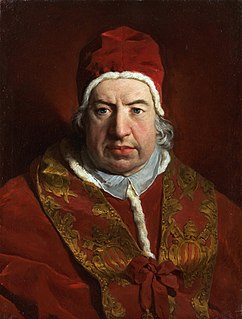A Quote by Pope Paul VI
No member of the faithful could possibly deny that the Church is competent in her magisterium to interpret the natural moral law.
Related Quotes
When I was at Notre Dame studying under Joe Evans, Frank O'Malley, and others, there was a very lively debate about the distinction between natural law and revealed truth. Most of the philosophers of church and state expected that what was going to be advocated as the law of the land would be related to natural law. If you attempted to draw lines about certain general moral truths that were derivative of logic and reason, they would prove to be widely shared, and therefore suitable to be enacted into law on both the civic and religious sides.
Just as in a physical body the operation of one member contributes to the good of the whole body, so it is in a spiritual body such as the Church. And since all the faithful are one body, the good of one member is communicated to another; everyone members, as the Apostle says, of one another [Eph 4:25]. For that reason, among the points of faith handed down by the Apostles, is that there is a community of goods in the Church, and this is expressed in the words Communion of Saints.
When you say there's too much evil in this world you assume there's good. When you assume there's good, you assume there's such a thing as a moral law on the basis of which to differentiate between good and evil. But if you assume a moral law, you must posit a moral Law Giver, but that's Who you're trying to disprove and not prove. Because if there's no moral Law Giver, there's no moral law. If there's no moral law, there's no good. If there's no good, there's no evil. What is your question?
The law of God, as quite plainly expressed in woman's construction is this: There shall be no limit put upon your intercourse with the other sex sexually, at any time of life. The law of God, as quite plainly expressed in man's construction is this: During your entire life you shall be under inflexible limits and restrictions, sexually. During twenty-three days in every month (in absence of pregnancy) from the time a woman is seven years old till she dies of old age, she is ready for action, and competent. As competent as the candlestick is to receive the candle. Competent every day, competent every night. Also she wants that candle - yearns for it, longs for it, hankers after it, as commanded by the law of God in her heart.
Broadly speaking, it is my conclusion that a pretty good guide to most issues of natural law is to look at those areas where you find a consensus in the Judeo-Christian tradition. I think that is roughly, not unerringly, the outline of what I would call natural law.There must be some moral values underlying any civilization; that's my guide.
If anyone dared to assert that the Pontiff had erred in this or that canonisation, we shall say that he is, if not a heretic, at least temerarious, a giver of scandal to the whole Church, an insulter of the saints, a favourer of those heretics who deny the Church's authority in canonizing saints, savouring of heresy by giving unbelievers an occasion to mock the faithful, the assertor of an erroneous opinion and liable to very grave penalties.





































